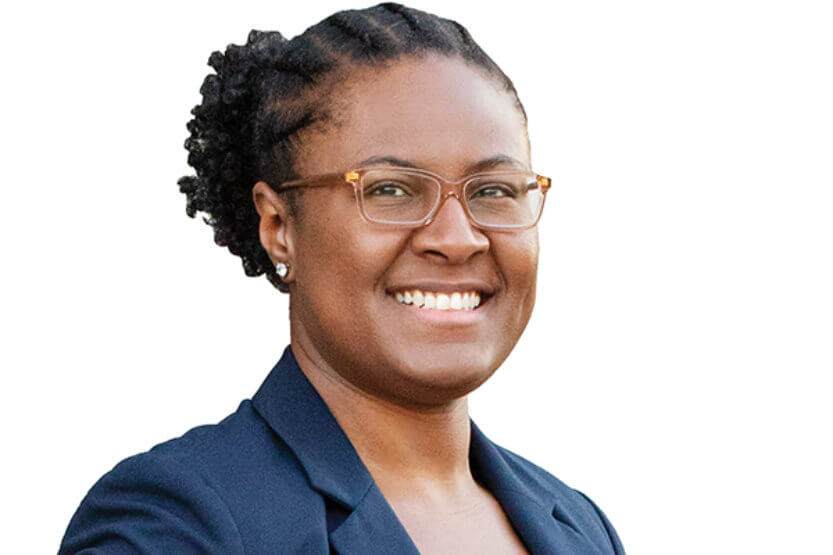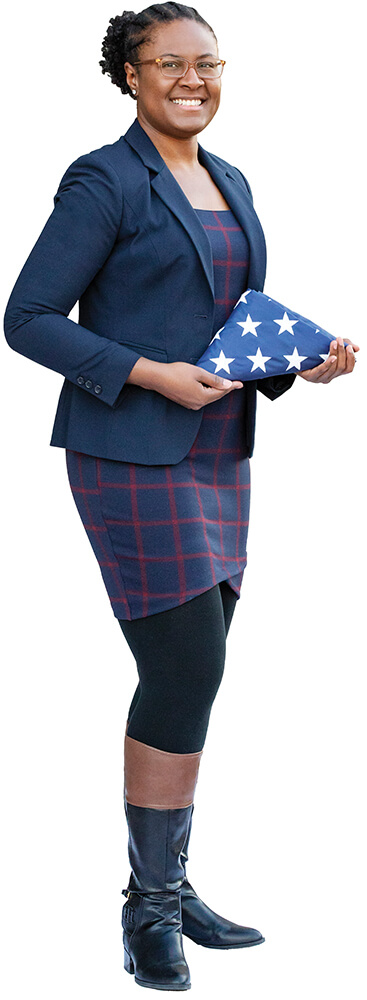In Class: Veterans’ Advocate
 Yulanda Curtis, Assistant Clinical Professor
Veterans Legal Clinic Director, University of Illinois College of Law. (Image by L. Brian Stauffer)
Yulanda Curtis, Assistant Clinical Professor
Veterans Legal Clinic Director, University of Illinois College of Law. (Image by L. Brian Stauffer) The Veterans Legal Clinic is one of four legal clinics in the U of I College of Law. We also have an Immigration Law Clinic, Family Advocacy Clinic and Federal Civil Rights Clinic (it represents federal prison inmates). I run the Veterans Legal Clinic in part because I’m an Army brat. Both my parents are veterans, and this is my way of giving back.
Among the legal services we provide is helping veterans upgrade their discharge from the military. A veteran generally needs an honorable discharge in order to access resources from the U.S. Dept. of Veteran Affairs. Unfortunately, not every veteran receives one. The worst cases are combat veterans, especially Vietnam War-era veterans, who had undiagnosed PTSD [post-traumatic stress disorder] when they were in the service and acted out with behaviors like going absent without leave and self-medicating with drugs. Those offenses can get someone kicked out of the military with a dishonorable discharge. When they go out into the world, the government simply does not see them as veterans. They do not qualify for VA medical care. They do not qualify for compensation benefits. They are not considered veterans with respect to job applications. It’s really harmful in their lives. A lot of these veterans end up homeless.

Yulanda Curtis poses with the flag given to her mother at her retirement from the military. (Image by L. Brian Stauffer)
My students get the opportunity to sit down with someone who has been essentially shunned by the U.S. government and have difficult conversations with them about what happened during their service. Then the students try to develop a relationship with these clients and earn their trust. These are skills you can’t learn by reading a book or studying case law.
The law is a very high-stress profession. The number of hours that some young attorneys put in at their firms is unsustainable. There’s a lot of burnout. The clinic provides a perfect opportunity for my students to start thinking about that before they enter the workforce because in the clinic, they’re actually doing work. They’re trying to balance their coursework with the rest of law school. They’re dealing with real clients, with real everyday stressors.
COVID-19 has been a big disruptor. My students and I have been learning how to present evidence and exhibits in wholly virtual hearings. For some of our clients, Zoom hearings are actually better suited for their schedule than going to court, which can require taking off work and/or finding child care. But it is making us think differently about access to the legal system for our low-income clients.
I talk a lot to our students about what a privilege it is to be an attorney and the power and weight that brings. Even as student-attorneys working with clients, they may be perceived as people in positions of power. They need to make decisions about their careers to determine whether, and how they’ll play a role as social justice-oriented attorneys. You don’t necessarily need to be a public-interest attorney to make that type of impact. Representing large organizations can further the advancement of social justice if the result is impactful for a larger group of people in need. Small-scale, direct representation achieves social-justice goals by giving a voice to those who might otherwise go unheard.
Edited and condensed from an interview conducted on Dec. 9, 2020.

